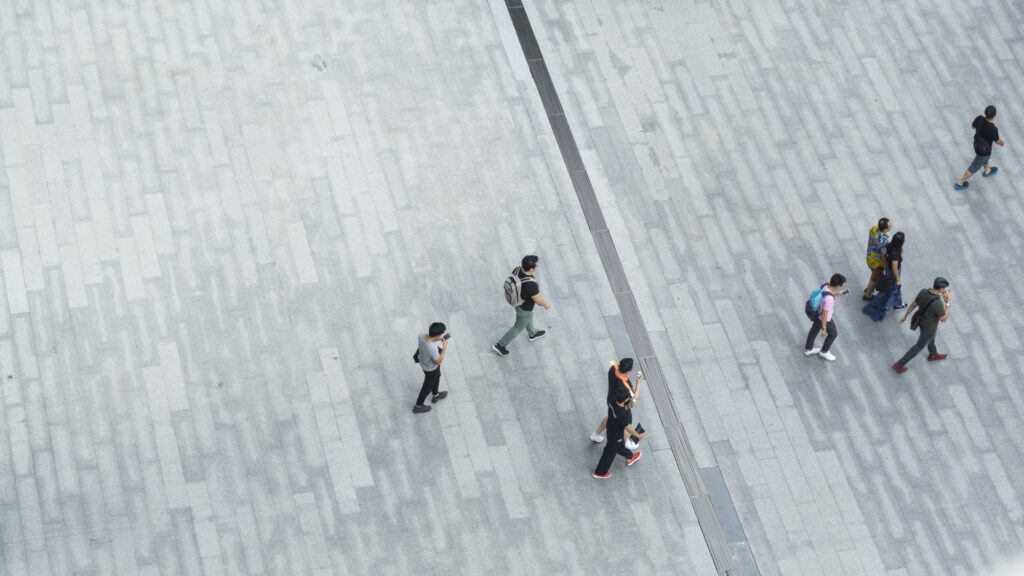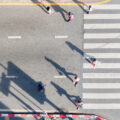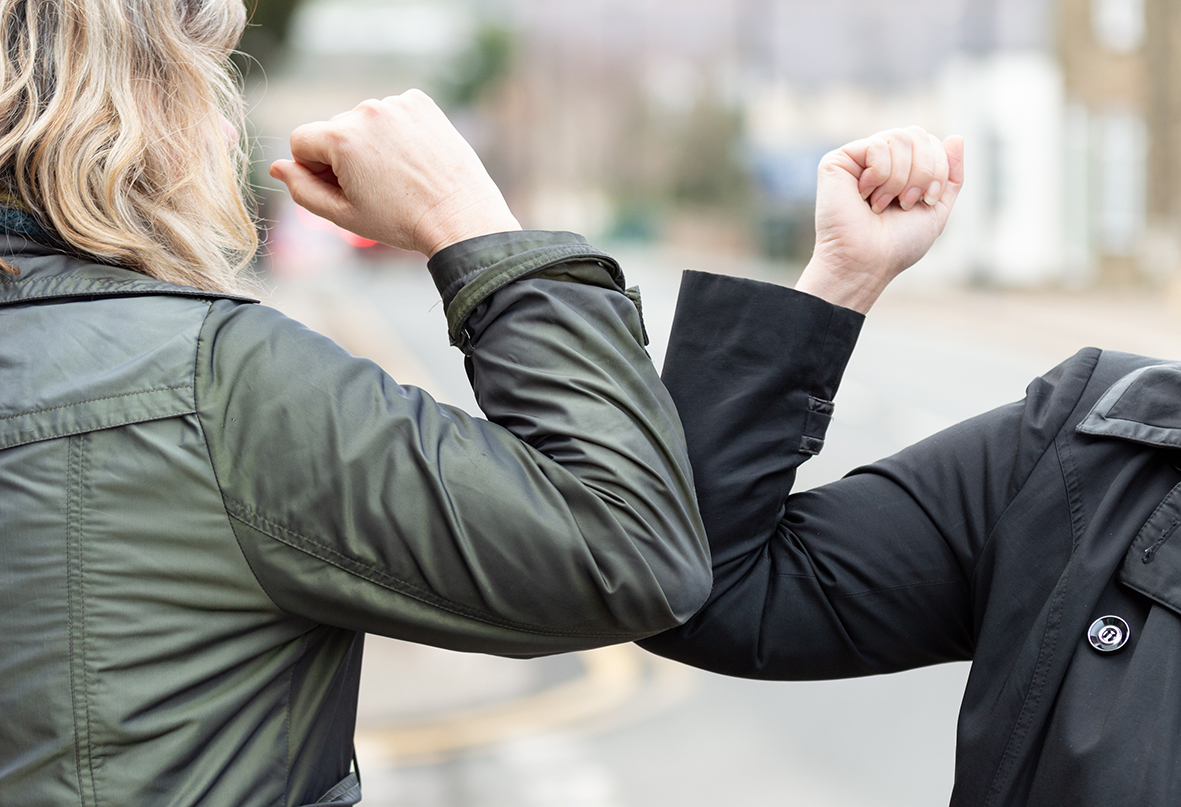COVID-19 – A secular response from a secular Danish population
COVID-19 – A secular response from a secular Danish population
COVID-19 has not greatly affected religious practices in Danish society. However, the Muslim minority population has been scapegoated for the pandemic.
This article is part of our series on the social impact of COVID-19.
COVID-19 is far from the first pandemic to hit the world. However, during other pandemics (such as the Spanish flu at the beginning of the 1900s), religious institutions in Europe were kept open to provide comfort to people in a time of crisis.[1] This has not been the case with the COVID-19 pandemic, where many religious institutions in Europe followed government advice to shut down, prioritising people’s physical safety.[2] This has not been without its challenges though – COVID-19 has had major impacts on Danish society.
Faith and COVID-19
Though the COVID-19 pandemic has strengthened people’s faith in countries like the US (25% of Americans stated that their faith was strengthened as a result of the pandemic), this has not been the case in Denmark.[3] Danes largely reported that they were not much affected by the lockdowns of religious institutions such as churches.[4] This is not surprising to scholars of religion and society, as Denmark is a country where people mostly use religious institutions for rites of passage such as weddings, funerals, and confirmations, and most define themselves as ‘cultural Christians’.[5]
Online alternatives: enough to satisfy religious Danes?
Another side of the COVID-19 pandemic that has had a significant impact on society was the variety of online alternatives that many religious institutions offered during lockdowns.[6] Online alternatives were especially helpful during Easter and Eid 2020, when the first lockdown happened in Denmark and many institutions and people were still adjusting to the ‘new normal’.[7] Many online ceremonies and gatherings took place, which provided people with a sense of comfort while keeping them safe and socially distanced.
Though COVID-19 impacted Danish society negatively on a social, economic, and cultural level,[8] it seems that religious institutions have been some of the least affected by the pandemic. Religious institutions have in almost all cases followed government restrictions and provided good online alternatives to maintain a sense of community and still stay safe.[9] The pandemic has apparently not influenced people’s belief in God or religion, either by weakening or strengthening their faith.[10] This is perhaps, as earlier stated, a result of Denmark not being a particularly religious country, and the closing of institutions therefore not affecting the average citizen’s life as much as, for example, the closure of supermarkets, bars, cultural venues, and restaurants.
The flipside to the pandemic: scapegoating
One flipside to the pandemic, however, has been the way in which the minority Muslim population in Denmark has been scapegoated.[11] Though some radical Muslim communities in Denmark expressed beliefs of COVID-19 being ‘God’s punishment against non-Muslims’,[12] some Danish imams, such as Ahmed Akkari, have spoken out against this publicly.[13]
Generally, the Muslim community has followed government regulations just as much as Christian communities have. Unfortunate targeting of the Muslim community, and coining their behaviour as ‘deviant’ towards COVID-19 guidelines without empirical evidence, has created a negative portrayal of the Muslim community in the Danish media.[14] [15] This has been criticised by many public voices in Denmark, especially the specific targeting of the Somali community.[16]
However, the Somali community was not the only group that experienced scapegoating during the pandemic. The most direct example can be seen in the failed vaccination campaigns that the Danish government sent out, targeting Muslims with references to the Quran.[17] [18] This was an attempt to try to ensure that the Muslim minority also got vaccinated.[19]
Given that the closure of churches affected most Danes very little, the pandemic’s greatest impact on Danish religion might be a legacy of deepening division between Muslims and non-Muslims.[20]
Denmark and COVID-19: closure of religious institutions far from the biggest problem
Overall, it does not seem that COVID-19 has affected religious aspects of Danish society. The biggest impact that the pandemic has had on religious communities seems to be through scapegoating and blaming the Muslim minority population for causing outbreaks and not following rules,[21] even though there was little to no evidence that Muslims in Denmark were worse at following government regulations than any other religious groups.
Want to learn more about similar topics? Go to the EARS Dashboard and receive weekly updates.
Sources
[1] Danish Muslims during COVID- 19 | Tidsskrift for Islamforskning
[2]COVID-19 og religion | Religionsvidenskabeligt Tidsskrift
[3] Et globalt perspektiv: Hvad har vi lært om religioner og pandemi?
[4] COVID-19 og religion | Religionsvidenskabeligt Tidsskrift
[5] Danskerne har fundet et nyt ord for deres tro | Kristeligt Dagblad | Begrebet kulturkristen fylder stadig mere i danskernes bevidsthed, viser opgørelse. Tidligere blev kulturkristendom brugt som skældsord, men i dag er det positivt for mange
[6] Religionskritik: Religion og tro under pres fra COVID-19
[7] Religionskritik: Religion og tro under pres fra COVID-19
[9] Coronavirus sætter verdens religioner under pres
[10] Coronavirus sætter verdens religioner under pres
[11] Religionskritik: Religion og tro under pres fra COVID-19
[12] Kan man ifølge islam hævde, at corona er Allahs straf? – Religion.dk
[13] Kan man ifølge islam hævde, at corona er Allahs straf? – Religion.dk
minoriteter hårdt: Nu advarer ekspert forud for muslimsk fejring
muslimer: Pas på – ramadanen må ikke betyde smitteeksplosion
myndigheder bør ikke udstille det somaliske mindretal midt i en global pandemi
Heunicke erkender, at vaccinepjecer med Koran-henvisninger var en fejl –
Sundhedsstyrelsen kritiseres for at begrunde vacciner med henvisning til
[19] Hvis flere minoritetsdanskere skal vaccineres, må Heunicke pakke islamforskrækkelsen væk | Information
[20] Danish Muslims during COVID- 19 | Tidsskrift for Islamforskning
myndigheder bør ikke udstille det somaliske mindretal midt i en global pandemi






